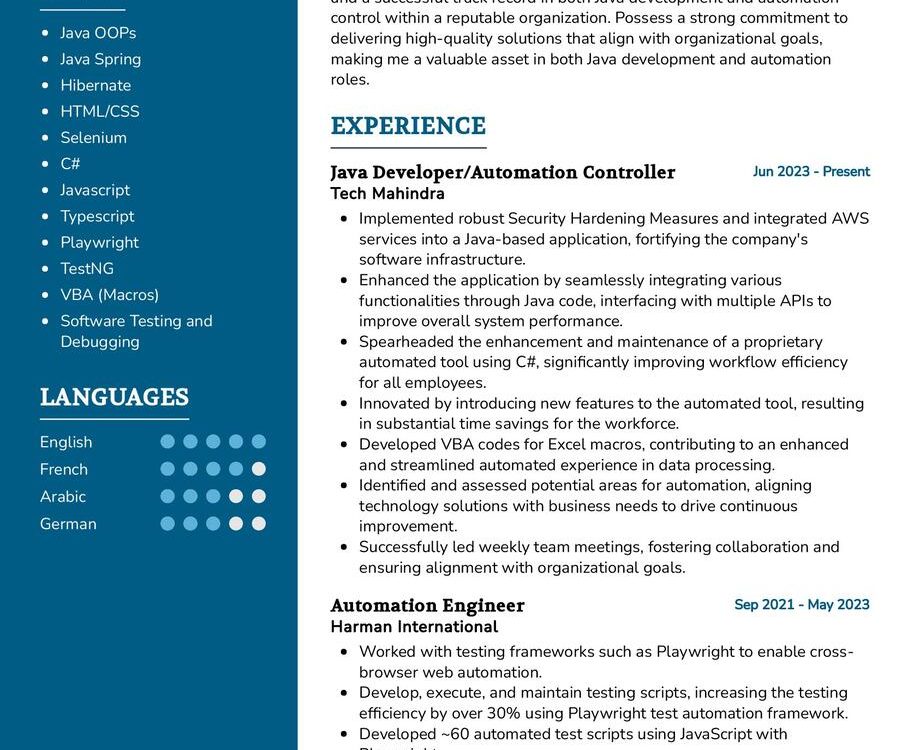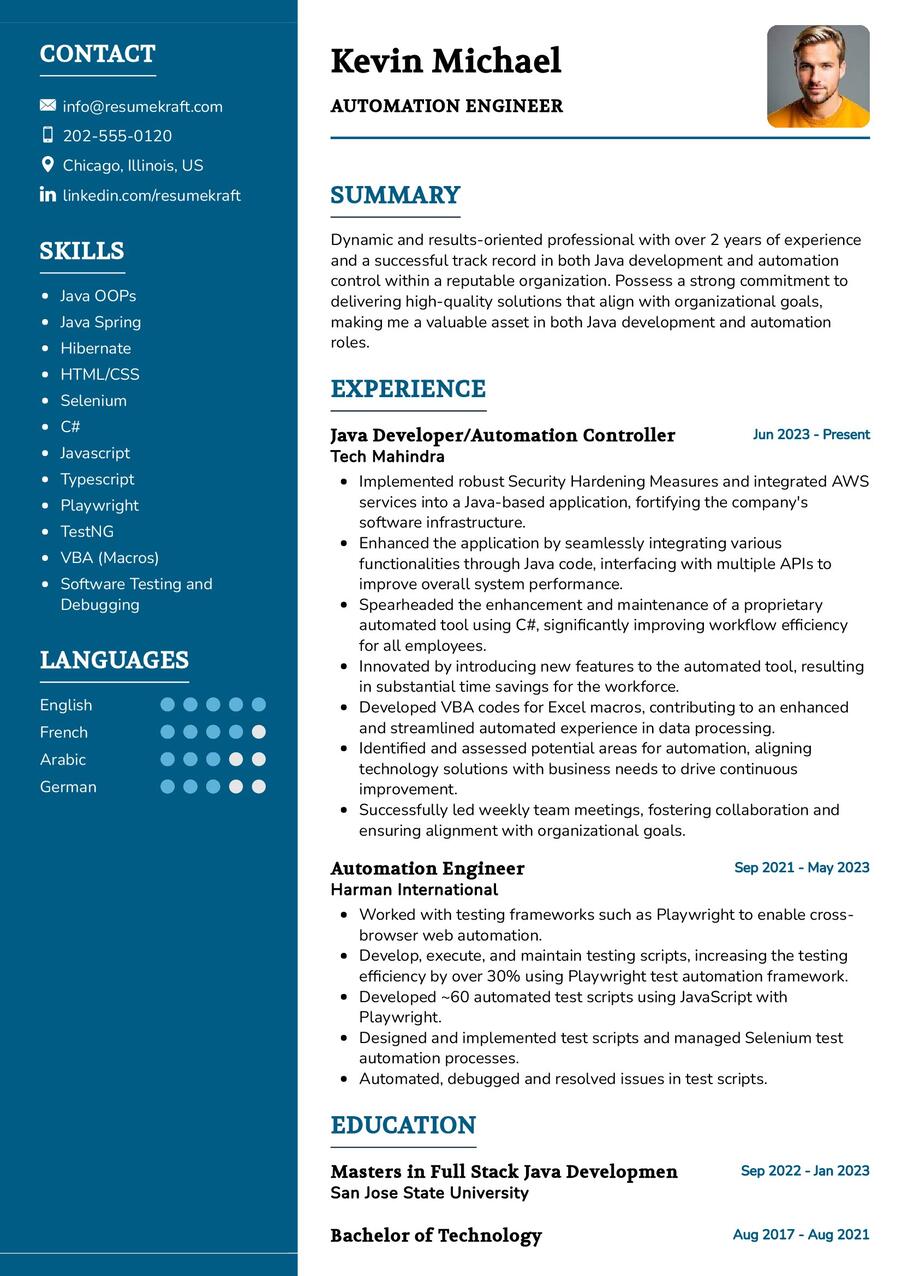Exploring the Role of an Automation Engineer
As the digital landscape continues to evolve, Automation Engineers play a crucial role in shaping the technological infrastructure of organizations worldwide. The position of an Automation Engineer requires a unique blend of technical prowess and problem-solving skills, contributing significantly to the efficiency and innovation of various processes. Let’s delve into the multifaceted responsibilities and qualifications that define the role of an Automation Engineer.
Key Requirements for an Automation Engineer Position
Embarking on a career as an Automation Engineer involves meeting specific requirements that reflect a combination of educational background and hands-on experience. The journey to becoming an Automation Engineer demands continuous learning and practical exposure. Here are the essential prerequisites for aspiring Automation Engineers:
- A Bachelor’s or Master’s degree in Computer Science, Electrical Engineering, or a related field, providing a strong foundation in the technical domain.
- Proficient knowledge of automation tools and frameworks, showcasing expertise in creating and implementing automated test scripts.
- Hands-on experience in programming languages such as Python, Java, or C++, demonstrating the ability to write efficient and effective automation code.
- Understanding of software development life cycle (SDLC) and agile methodologies, vital for seamless integration of automation processes into development workflows.
- Strong analytical and problem-solving skills, honed through experiences and possibly through courses and certifications.
- Excellent communication skills, essential for collaborating with cross-functional teams and conveying technical information to non-technical stakeholders.
- Adaptability to evolving technologies and a proactive approach to staying updated with industry trends.
Securing additional certifications in automation testing tools can further enhance your profile and competitiveness in the job market.
Responsibilities of an Automation Engineer
The role of an Automation Engineer is dynamic, involving a diverse set of responsibilities that contribute to the efficiency and reliability of software systems. Let’s explore the key responsibilities that define this role:
- Designing, developing, and implementing automated testing solutions to ensure the quality of software products.
- Collaborating with software developers to integrate automated testing into the continuous integration/continuous deployment (CI/CD) pipeline.
- Conducting feasibility studies to identify areas where automation can enhance testing processes and reduce manual effort.
- Creating and maintaining documentation for automated testing procedures, ensuring clarity and accessibility for the team.
- Troubleshooting and debugging automation scripts, identifying and resolving issues to maintain robust testing frameworks.
- Providing training and support to team members on automated testing tools and best practices.
- Staying informed about industry best practices, emerging technologies, and trends in automation testing.
Each responsibility comes with its unique challenges and learning opportunities, contributing to the growth and expertise of an Automation Engineer.
Crafting an Effective Automation Engineer CV
Your Automation Engineer CV is a vital tool in showcasing your skills and experiences. Here are some tips to help you create a compelling CV that stands out in the competitive job market:
- Highlight your experience in designing and implementing automated testing solutions, emphasizing the impact on software quality.
- Showcase your proficiency in programming languages and automation tools, providing specific examples of successful automation projects.
- Quantify your achievements by including metrics that demonstrate the efficiency gains and improvements brought about by your automation efforts.
- List relevant certifications in automation testing tools, showcasing your commitment to continuous learning and staying updated with industry standards.
- Customize your CV for each job application, aligning your skills and experiences with the specific requirements of the role.
Your CV is not just a document but a reflection of your journey and expertise as an Automation Engineer.
Automation Engineer CV Summary Examples
Your CV summary is the first impression you make on potential employers. Craft a powerful summary that encapsulates your experiences, skills, and the value you bring to the role. Here are some examples to inspire you:
- “Results-driven Automation Engineer with over 5 years of experience in developing and implementing automated testing solutions, improving software quality and reducing testing time by 30%.”
- “Detail-oriented Automation Engineer with a proven track record in designing and maintaining robust testing frameworks, ensuring the reliability of software products in a fast-paced development environment.”
- “Experienced Automation Engineer specializing in CI/CD integration, adept at collaborating with development teams to streamline testing processes and enhance overall software quality.”
Your CV summary serves as a snapshot of your career, providing employers with a quick overview of your capabilities and achievements.
Building the Experience Section of Your Automation Engineer CV
The experience section of your CV is the core of your document, narrating the story of your career and the impact you’ve made. Here are examples to guide you in detailing your Automation Engineer experiences:
- “Led the implementation of an automated testing framework, resulting in a 25% reduction in software release cycles and a 15% improvement in overall software quality.”
- “Collaborated with development teams to integrate automated testing into the CI/CD pipeline, reducing manual testing efforts by 40% and enhancing software delivery speed.”
- “Provided training sessions on automation tools and best practices, empowering team members to contribute to automated testing efforts and improving overall team efficiency.”
Each experience entry is a chapter in your career narrative, showcasing your contributions and achievements as an Automation Engineer.
Educational Background for Your Automation Engineer CV
Your educational journey is a foundation that supports your career achievements. Include relevant educational milestones in your Automation Engineer CV:
- Master of Science in Computer Engineering, XYZ University, a program emphasizing advanced automation concepts and hands-on experience, 2017.
- Bachelor of Technology in Electrical Engineering, ABC University, providing a solid foundation in engineering principles and problem-solving skills, 2015.
- Automation Testing Certification, XYZ Institute, showcasing specialized training in the latest automation testing tools and methodologies, 2018.
Each educational qualification represents a building block in your journey towards becoming a proficient Automation Engineer.
Automation Engineer Skills for Your CV
Your skill set is a toolkit equipped with various abilities that you’ve developed over the years. Here are the essential skills that an Automation Engineer should possess:
Soft Skills:
- Problem-solving abilities, essential for identifying and resolving issues in automated testing processes.
- Communication skills, vital for conveying technical information clearly and collaborating with cross-functional teams.
- Attention to detail, crucial for creating and maintaining accurate documentation for automated testing procedures.
- Adaptability, necessary for staying updated with evolving technologies and adjusting to changing project requirements.
- Time management, important for efficiently handling automation projects and meeting deadlines.
Hard Skills:
- Proficiency in programming languages such as Python, Java, or C++, essential for writing efficient automation code.
- Knowledge of automation testing tools and frameworks, demonstrating the ability to design and implement automated testing solutions.
- Familiarity with CI/CD pipelines and agile methodologies, crucial for integrating automation into the software development life cycle.
- Debugging skills, necessary for identifying and resolving issues in automation scripts and frameworks.
- Training and mentoring skills, important for providing support and guidance to team members in automation efforts.
Each skill is a valuable asset in your toolkit, contributing to your effectiveness as an Automation Engineer.
Common Mistakes to Avoid When Writing an Automation Engineer CV
While crafting your Automation Engineer CV, it’s crucial to avoid common pitfalls that can hinder your chances of landing your desired job. Here are mistakes to steer clear of:
- Avoid using generic terms and phrases; instead, tailor your CV to highlight your specific achievements and contributions as an Automation Engineer.
- Quantify your achievements to provide a clearer picture of your impact, avoiding vague statements about your responsibilities.
- Include a cover letter with your CV, as it provides an opportunity to communicate your story and connect with potential employers on a more personal level.
- Use technical language judiciously; ensure that your CV is accessible to both technical and non-technical readers, emphasizing the value you bring to the role.
- Thoroughly proofread your CV to maintain a polished and professional image, avoiding errors that could negatively impact your candidacy.
Avoiding these mistakes will help you create a CV that effectively communicates your unique strengths and qualifications as an Automation Engineer.
Key Takeaways for Your Automation Engineer CV
As you conclude this comprehensive guide, remember the key points to enhance your Automation Engineer CV:
- Highlight your experience in designing and implementing automated testing solutions, emphasizing the impact on software quality.
- Showcase your proficiency in programming languages and automation tools, providing specific examples of successful automation projects.
- Quantify your achievements by including metrics that demonstrate the efficiency gains and improvements brought about by your automation efforts.
- List relevant certifications in automation testing tools, showcasing your commitment to continuous learning and staying updated with industry standards.
- Customize your CV for each job application, aligning your skills and experiences with the specific requirements of the role.
Finally, feel free to utilize resources like AI CV Builder, CV Design, CV Samples, CV Examples, CV Skills, CV Help, CV Synonyms, and Job Responsibilities to create a standout application and prepare for the Automation Engineer job interview.
Armed with these insights and tips, you are now ready to craft a CV that is a true reflection of your journey, your skills, and your aspirations. Remember, your CV is not just a document; it is a canvas where you paint your career story, a story of growth, learning, and automation expertise. Best of luck!


